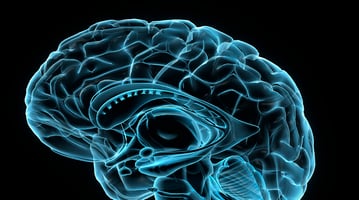While studies using functional magnetic resonance imaging (fMRI) have begun to investigate the...
"Miswired" Brain Circuits May Lead to Development of Brain Disorders
 |
“The idea that control of brain wiring is located in the RNA molecules that are constantly being dynamically turned over is something that we didn’t anticipate,” said Jaffrey. “This tells us that regulating these RNA degradation pathways could have a tremendous impact on brain development. Now we know where to look to tease apart this process when it goes awry and to think about how we can repair it.”
Several experts say the future looks promising for approaches—perhaps like this one—that will lead to the prevention of mental illnesses. Read more about that in Psychiatric News here.
(Image: traffico/Shutterstock.com)




